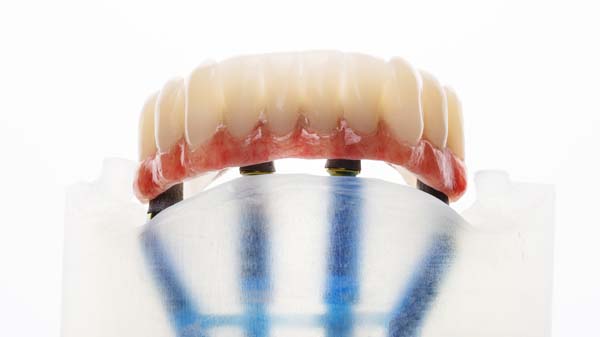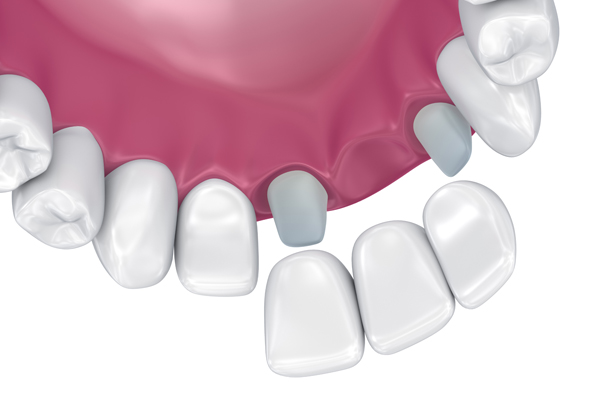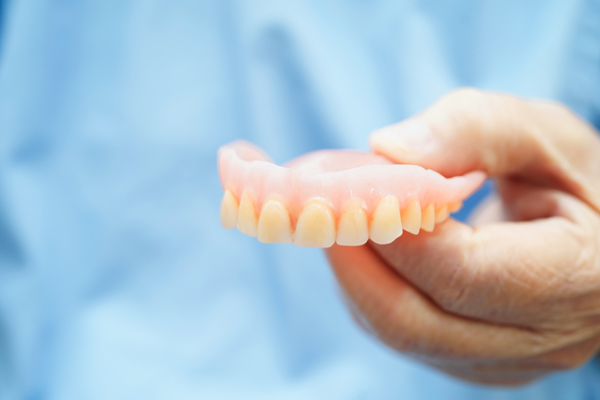Comparing Implant Supported Dentures With Traditional Dentures

Most of us know that dentures are an option if we lose our teeth, but there is also a more permanent solution called implant supported dentures. If you’re not familiar with this type of denture, that’s ok. Recent advancements in dental technology have led to where patients can receive implants combined with other dental applications to make for a more comfortable and form-fitting tooth loss solution. Not only are these types of dentures more secure, but they also make it possible to eat the foods you love without worrying about your dentures falling out or breaking them and having to get an emergency replacement.
Differences between traditional dentures and implant-supported dentures
To help you decide if implant-supported dentures are right for you, we’ll compare them with traditional benefits to show the benefits and risks patients need to consider. We know how important your smile is and that getting a proper solution can impact your self-esteem as well as your quality of life.
To help inform your decision, we will directly compare implants versus traditional dentures.
The resting position of the dentures
As most of us know, traditional dentures work by sitting on the gums and using the upper or lower jawbone for support. In almost all cases, this is achieved by placing denture adhesive on the dentures and then placing them in the mouth. Over time the adhesive wears off and must be reapplied to keep the dentures in, and the dentures must be removed and cleaned every so often.
Conversely, implant dentures are permanently attached to the gum, with implants acting as an anchor for the denture application. This means that the dentures are fused to the mouth and not designed to be removed. For patients used to traditional dentures, this makes it easier to eat and talk without worrying about dentures falling out or becoming loose. Additionally, it is not necessary to apply denture adhesive for the teeth to stay in.
Jawbone recession is a symptom of traditional dentures
When you lose your natural teeth and get dentures, your jawbone loses the attachment to the root system that once supported your natural teeth. Therefore, a person’s mouth may begin to droop or sag over time, resulting in an unnatural look. Jawbone density can recede to the point that corrective surgery is needed. This is not to mention that traditional dentures become less stable as the jawbone recedes.
Dental implants are inserted directly into the jawbone and work the same way as natural tooth roots, stimulating the jawbone and preventing jawbone recession, resulting in a more natural facial appearance. This also improves the health of your mouth and jaw as other dental issues can impact the amount of jawbone that a person has available such as advanced gum disease. In this way, implants benefit not just your smile but your overall oral health and quality of life.
Reach out to your dentist for more information
These are just a couple of the advantages of implant dentures over traditional dentures. Contact your dentist to learn more about the pros and cons and if you are a good candidate for this procedure. Learning more will help you make the most informed decision regarding your oral health.
Request an appointment here: https://www.yourperfectsmiledentistry.com or call Your Perfect Smile Cosmetic & Family Dentistry at (281) 305-9549 for an appointment in our Kemah office.
Check out what others are saying about our dental services on Yelp: Implant Supported Dentures in Kemah, TX.
Related Posts
Are you considering implant supported dentures? This hybrid tooth replacement option is one that provides patients with stability and a natural-looking smile. Implant supported dentures can be used to replace teeth on the upper or lower arch. In the event that the lower arch of teeth needs to be replaced, patients are often curious about…
If you are missing all the teeth on your lower or upper jaw, you may be a good candidate for an All-on-4® system that uses four dental implants to secure a custom-fit fixed denture. It is a type of implant-supported denture that solves most of the common issues of traditional dentures. This article will outline…
A dental bridge is often an important tooth-replacement option when one or more teeth are missing in the same area. Gaps in the smile affect chewing, speech, and overall oral health. Over time, missing teeth can also affect jaw alignment and place extra stress on the remaining teeth. Understanding how a bridge works helps patients…
Denture repair is a common need for patients who wear partial or full dentures. While these oral appliances are strong, they are prone to breaking because of their delicacy. When a break occurs, it can be hard to know whether a denture repair can take place or if a complete replacement is necessary. Thankfully, patients…


